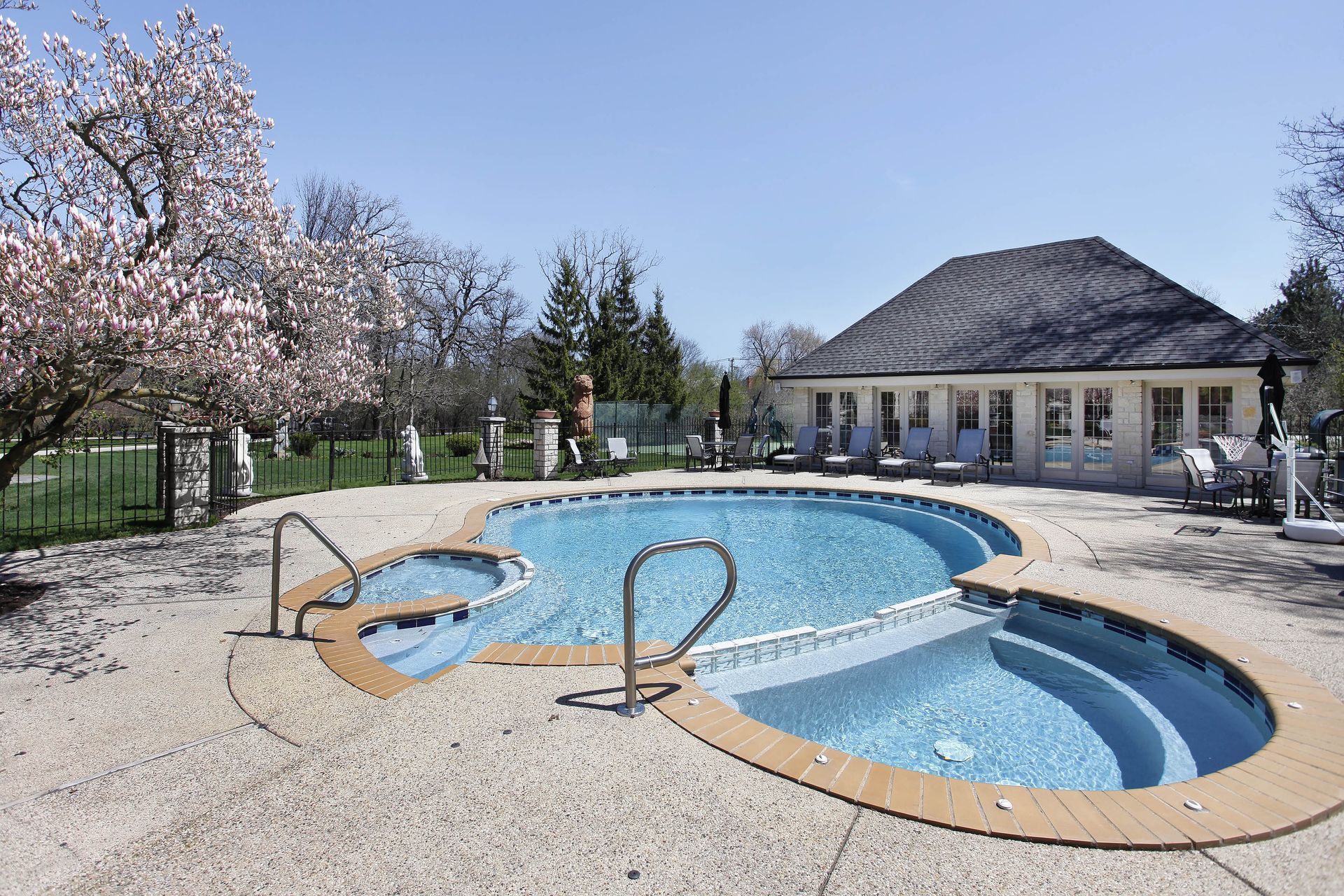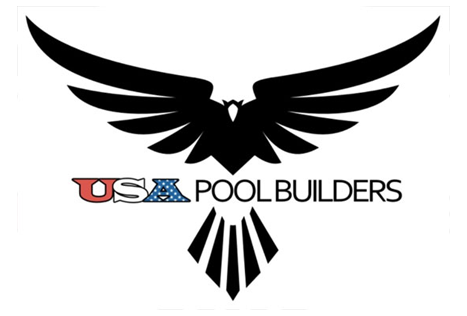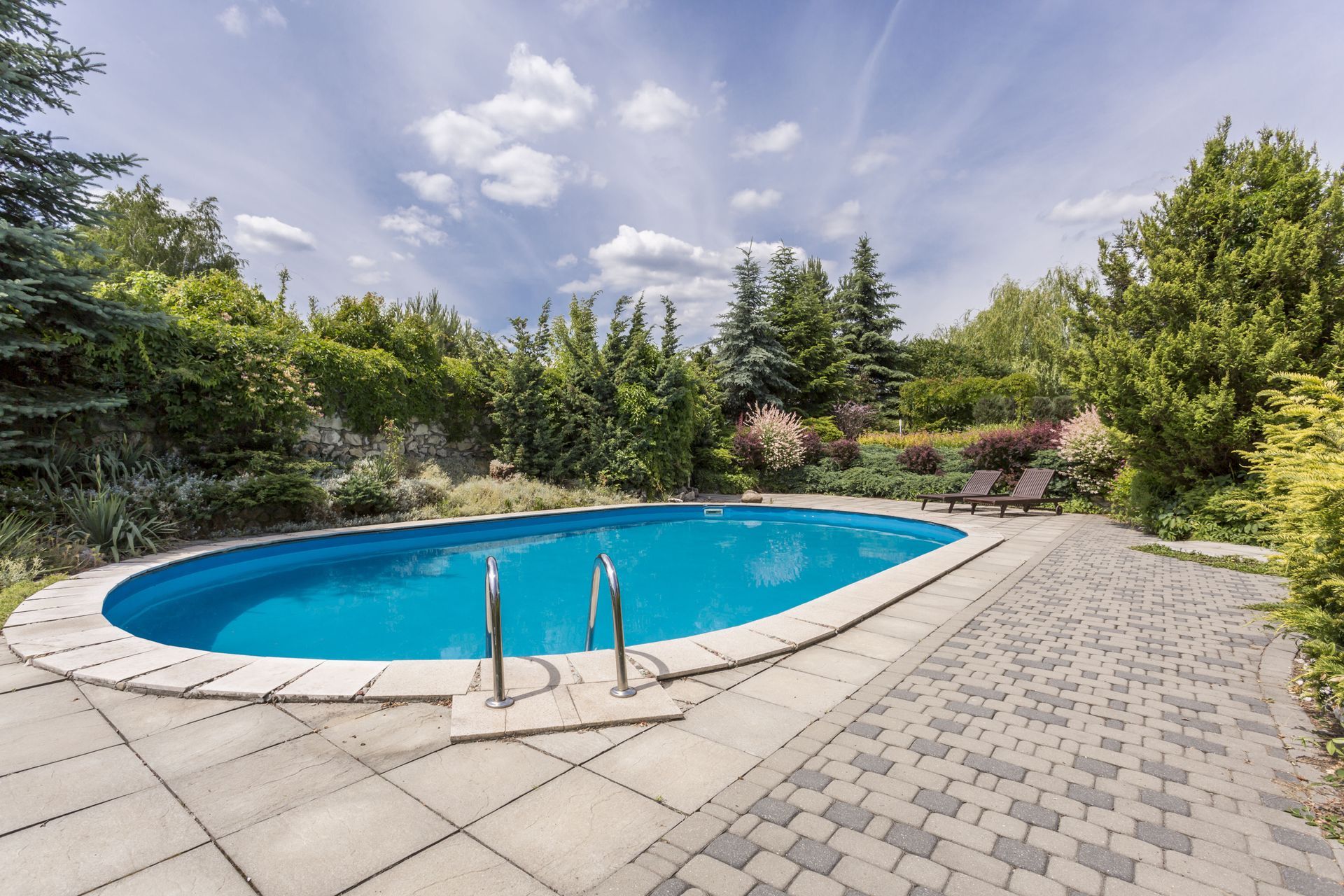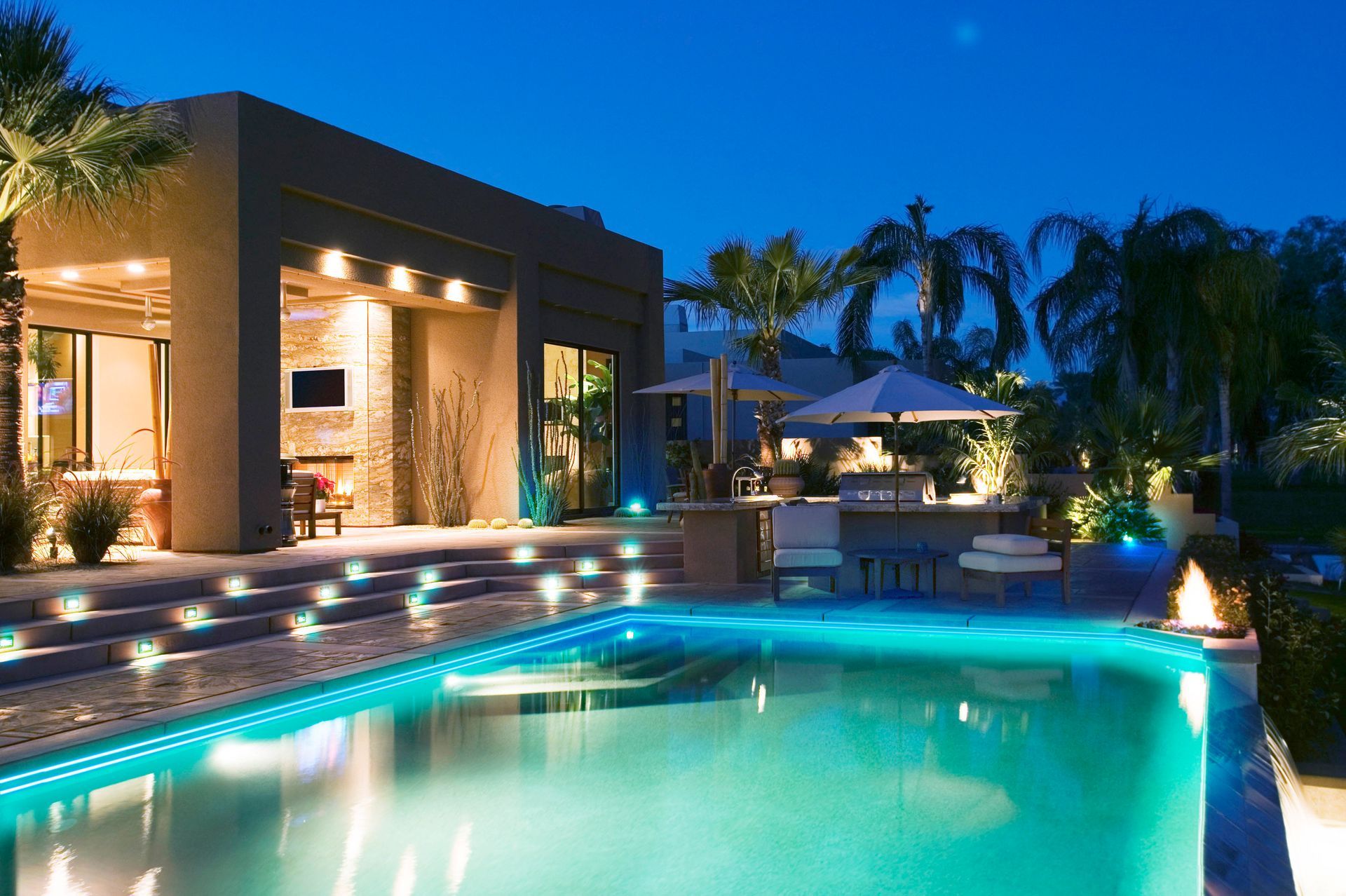September 24, 2025
Building a pool is a significant investment that requires careful planning and consideration. Hiring the right pool builder is crucial to ensuring the project runs smoothly and meets your expectations. Before you sign a contract, it's essential to ask the right questions to clarify the project's scope, cost, timeline, and more. This article provides a comprehensive guide to the key questions you should ask a pool builder before making a commitment. Understanding these elements will help you make an informed decision and ensure that you are fully satisfied with the final product.
1. What Is Your Experience and Background in Pool Construction?
Experience is a critical factor in choosing the right pool builder. With years of service, a seasoned builder has encountered various project challenges and developed effective solutions. It's important to ask how long the contractor has been in business, as their longevity in the industry often correlates with reliable service and expertise. Experienced builders are more likely to have refined processes in place, ensuring the project runs smoothly from start to finish. Additionally, they can provide insights into cutting-edge techniques and materials that less established builders may not offer.
Not all pools are the same, and different builders might specialize in specific types of structures or styles. It's essential to understand the range of pools a builder is comfortable constructing, whether they are in-ground, above-ground, commercial, or residential. In-ground pools are generally considered a more premium and long-term investment, with costs typically being 3.5 times more than above-ground options, highlighting their superior value. By knowing the types of pools a builder has worked on, you can gauge their ability to deliver what you envision for your property. Make sure their expertise aligns with your particular project requirements.
Verifying a builder's credentials and certifications is a crucial step in confirming their legitimacy and expertise. Licensing requirements can vary by locale, so it's important that your chosen builder holds all necessary certifications to legally operate in your area. In addition, memberships in professional organizations such as the Pool & Hot Tub Alliance (PHTA) can signify their commitment to industry standards and continual education. When a builder is certified, it often means they adhere to rigorous standards and best practices. These credentials ultimately afford you a certain peace of mind regarding the quality and safety of your pool construction.
A reputable pool builder will readily provide references from past clients. Speaking with former customers gives you insight into the builder's reliability, professionalism, and workmanship. Feedback from those who have previously worked with the builder can clarify whether timelines were met and budgets maintained. Moreover, references can offer a real-world perspective on how flexible a builder is when adapting to unexpected challenges or changes in project scope. This firsthand information is invaluable in deciding whether the builder is suited to effectively complete your pool.
A portfolio provides a tangible record of a builder's abilities and style. Reviewing the completed projects allows you to see the quality and diversity of their work, helping you determine if their aesthetic aligns with your vision. Portfolios can showcase various design elements, from simple to sophisticated styles, as well as innovative solutions. Many builders have their portfolios accessible online, providing easy access for prospective clients to review at their convenience. Seeing a builder's past work can spark inspiration for your project and establish trust in their capability to fulfill your needs.
2. What Are the Costs and Payment Terms?
Understanding the full financial commitment before embarking on a pool construction project is essential. Always ask for a comprehensive cost breakdown from potential builders, including labor, materials, permits, and any other expenses. In-ground pools, being a premium selection, are notably more expensive—3.5 times more costly than above-ground alternatives—but they also promise greater durability and aesthetics. A detailed estimate allows you to anticipate all expenditures and avoid unexpected costs during construction. This transparency ensures there are no unpleasant surprises that could derail your budget.
Payment terms should be clearly defined in any pool construction contract to manage cash flow effectively. Understanding the agreed-upon payment schedule allows you to prepare for money disbursement at various project stages, such as initial deposits, midway payments, and final balances. The payment structure can vary significantly between builders, so requesting a schedule up front is imperative. Some builders might also require a deposit before starting any work, which is common practice but should still be included in the contract. Clear terms prevent financial disputes and ensure a smooth completion process.
It's not uncommon for construction projects to incur additional costs beyond the initial estimates. Factors such as unexpected site conditions, material upgrades, or design changes can affect the overall price. Discussing with the builder about how these scenarios are handled can prevent financial strain and conflict down the line. Always inquire about potential overruns, and also explore options for setting a contingency budget for unforeseen situations. Understanding these factors keeps the project on financial track and aligns both parties to proactive problem-solving.
Pool construction represents a significant financial undertaking, which means considering financing options might be necessary. Builders often work with various financial institutions to provide clients with access to favorable loan terms and packages. Inquiring about these options allows you to assess how to fund your pool based on your financial situation. Many homeowners prefer installment payments that spread the cost over time rather than a single upfront sum. Evaluate each option carefully to ensure it aligns with your long-term financial goals and capabilities.
Any contract should stipulate clauses and penalties to safeguard against contractual breaches. These clauses govern scenarios where either party fails to meet agreed-upon terms, such as missed payments or project delays. Discussing these conditions in advance prompts a mutual understanding of accountability and can serve as a form of security for both sides. Penalties might include monetary fines, ensuring both the builder and homeowner are incentivized to honor their commitments. A well-outlined contract protects the interests of all parties involved and supports project continuity.
3. What Is the Proposed Timeline for the Project?
Determining a realistic start date is imperative to align expectations and project planning. The start date can affect not only your scheduling but also financial milestones such as payment releases and resource availability. Building timelines can vary greatly depending on whether your pool is in-ground or above-ground, as the complexity differs significantly. Often, projects can only begin once permitting is finalized and materials are procured. Recollect that weather conditions, zoning clearances, and utility installations are factors that might influence the proposed start date.
Having a clear understanding of the project completion date is vital for planning and coordination. Ask your builder for a detailed timeline that includes significant milestones leading up to the anticipated completion. While unforeseen circumstances may impact timelines, a rough end date allows you to plan for post-construction use or additional landscaping projects. Builders should provide a balanced estimate that includes buffer times for potential delays, allowing for timely project delivery. Regular communication throughout the process ensures that both parties are informed of any adjustments that might arise.
The decision to build a pool is significant, and choosing the right builder is paramount to the project's success. By asking the right questions and understanding the scope of the project, costs, timeline, materials, design process, and warranty terms, you can confidently select a pool builder who will bring your vision to life. Ensure that every detail is clear and outlined in the contract to avoid future misunderstandings and enjoy a hassle-free pool-building experience. The ultimate aim is a seamless experience with results deserving of your investment, matching both personal and financial expectations. According to Jobera, 8% of U.S. homes have a swimming pool, and in-ground pools are 3.5 times more expensive than above-ground options, reflecting the premium nature and long-term investment of in-ground installation. Be sure to reach out to USA Pool Builders today for more information on our professional pool builder!





